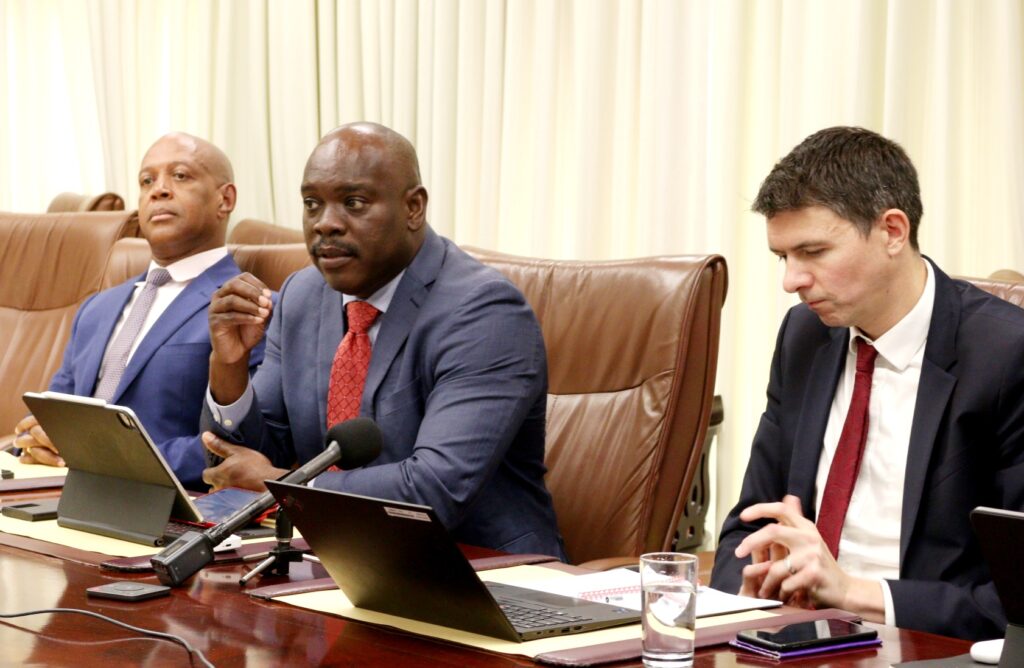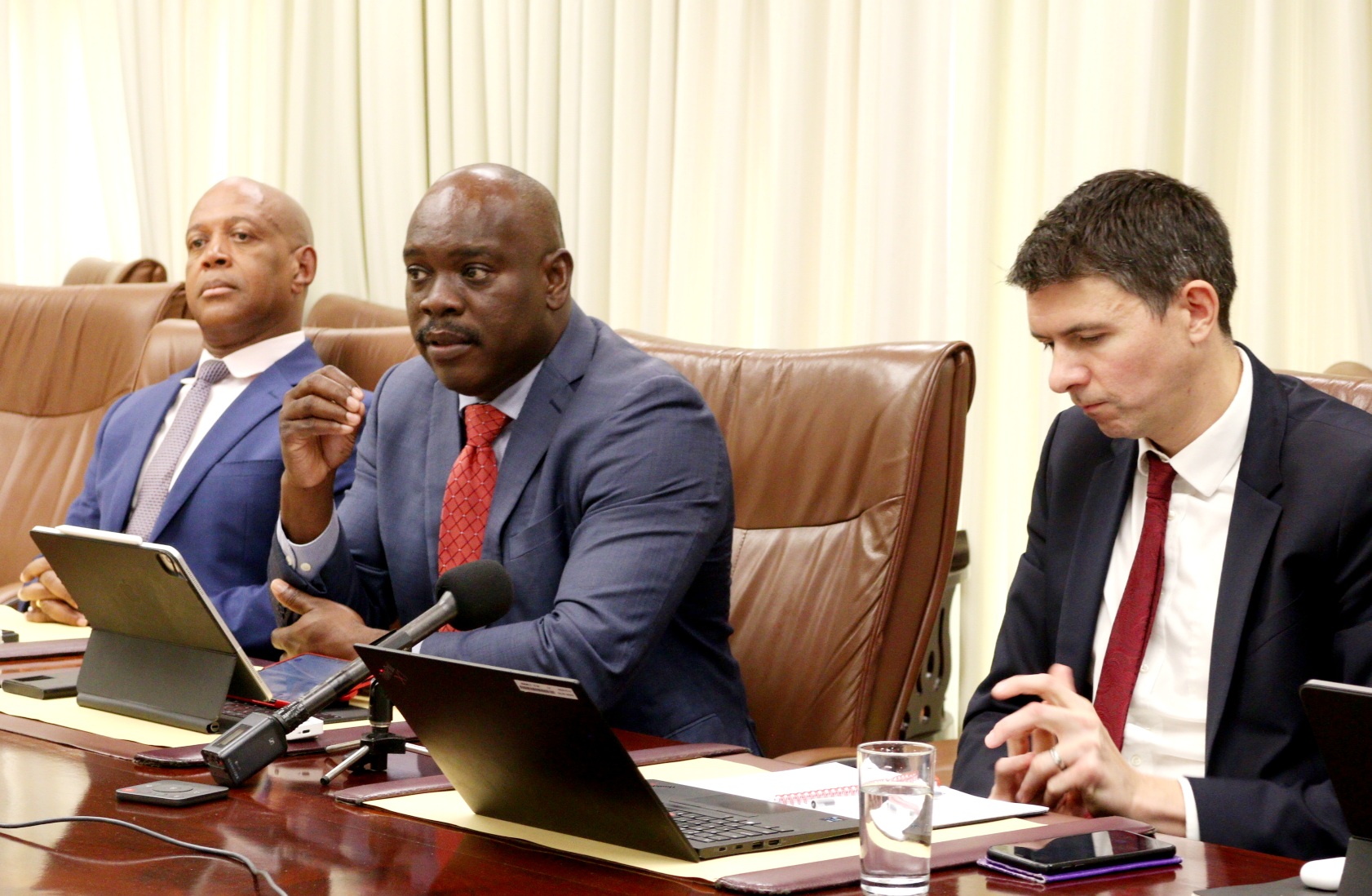
Long-awaited reforms of the nation’s state-owned enterprises (SOEs), which have been a heavy financial burden on the central government through funding transfers, are slated to be completed by the end of next year, Minister in the Ministry of Finance Ryan Straughn announced on Wednesday.
The minister confirmed job losses may be part of the process but challenged SOE workers to prepare themselves for change.
As he briefed reporters at Government Headquarters to announce an agreement with an International Monetary Fund (IMF) staff mission, the economist helming the government’s fiscal policy was in lock-step with the IMF team supervising the Barbados economy this year, which included its Extended Fund Facility (EFF) and the Resilience and Sustainability Facility (RSF).
Straughn said there may be some redundancies but it was incumbent on workers to secure their future by retooling and reskilling to remain relevant in a fast-changing technologically-driven world.
He and the IMF mission chief Michael Perks were united in satisfaction with the pace at which the SOEs are being reformed, especially given the complexity of some agencies.
The minister noted that having experienced a setback in the target for completion due to the COVID-19 pandemic, it was now necessary to push forward on all fronts.
He said: “You will recall that once COVID happened, in the first programme we had a certain timeline for the phasing of the execution of the SOE reform. We had to pause because of COVID. But obviously, in a post-COVID environment, it means that all of that hiatus now has to come all at once; and that is regrettable but it is important that we get these reforms completed so that Barbadian taxpayers can see, not just more value for money, but that the SOEs can actually and genuinely execute the mandate for which they are set up.”
He linked the success of the reforms partly to building resilience across the board.
“These reform efforts will be critical to be completed so we can put a lot of the historic processes to bed and be able to usher in, not just by way of technologies and other systems, but being able to efficiently do what we have to do,” Straughn said. “And therefore, with that efficiency, we mean that persons will have to be retrained to meet new processes, and therefore, the government continues to focus on its own public sector modernisation programme.”
The minister also stressed the need for the private sector to implement its own digital and technological modernisation initiatives, so Barbados can “genuinely” be open to doing business faster and more efficiently.
He highlighted the Grantley Adams International Airport as a well-run SOE that had not been earmarked for reforms until COVID-19 struck. As a result, it needed state funding, pushing the administration to return to the drawing board, he said.
The financial statements of the SOEs were also unavailable, which added to the challenges, Straughn noted.
“While we have seen progress with some, it is not complete to the point where we are fully satisfied that the entities moved forward, and the timelines for that completion should be by the end of next year. This is now the state agencies working with the private sector to be able to put these things in place,” he explained.
Straughn also revealed that fees introduced by some of these entities for certain services will be reviewed. He said there will be structural and human resources strengthening through retraining of workers.
“There is a skills deficit in some key areas across the board,” the former Central Bank of Barbados economist said. “We are going to establish a government accounting service internally to help support. But by the same token, we want to make sure that as we recruit persons not just to head these organisations, but the commercial ones are the ones that pose perhaps the greatest fiscal risk…. We are trying to make sure those entities that are well-run, remain well-run.”
Perks added: “We see, through the budget, the reduction in transfers is happening; it’s on track. So, that’s one metric that we look at… the reform delivery and fiscal measurements that we want to see to support the fiscal adjustment and debt sustainability.”
He identified the structural benchmarks that were set as part of the programme as an indicator that progress was being made at pace.
“These are things which are difficult across countries and these are things for which plans are completed and approved by Cabinet. So, the evidence is there that the big underlying structural reforms have been made, [lan] that progress is being made. The ambition of the plan takes time,” the IMF official said.
emmanueljoseph@barbadostoday.bb
Tulisan kasebut Govt, IMF satisfied with pace of reform of state agencies muncul pisanan ing Barbados Today.
Didhukung dening Plugin RSS Gema dening CodeRevolution.


Komentar Anyar